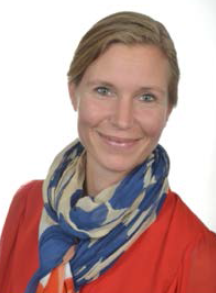
This master class, presented by Dr Saskia Hufnagel, will take place on Thursday, 30 March 2017, from 4:00 to 6:00 pm, at the University of Montreal, Pavillon Lionel-Groulx, Local C-4104.
5@7 Concept, with snacks and more offered.
Dr Saskia Hufnagel is a Senior Lecturer in Criminal Law at Queen Mary University London. She previously worked as a Research Fellow at the Australian Research Council Centre of Excellence in Policing and Security (CEPS), Griffith University, Australia, and was a Leverhulme Fellow at the University of Leeds. She taught at the ANU College of Law and held a permanent teaching position at the University of Canberra. She has widely published on international police cooperation, comparative constitutional law, terrorism and art crime. Her publications include Policing Cooperation Across Borders: Comparative Perspectives on Law Enforcement within the EU and Australia Ashgate, 2013. Dr Hufnagel is a qualified German legal professional and accredited specialist in criminal law.
Here are some topics that will be discussed during this master class:
1. International police cooperation: Discussion of possible regional, bilateral and multilateral comparisons of police cooperation across national and state borders. How does law enforcement cooperation differ between federal systems, unions of states, or special administrative regions?
2. Terrorism and human rights: How does the regulation of terrorism offenses differ between national systems? How does the enforcement of terrorism offenses and their prevention differ in various parts of the world? What is the influence of differing national human rights requirements on terrorism law and enforcement?
3. Art crime: Art crime comprises theft, fraud/forgeries, looting, copyright, import/export, vandalism and many other offenses. Enforcement levels of art crime around the world are generally very low and the market is rather unwilling to self-regulate. How do enforcement levels differ around the world and what are the reasons? How is this crime fostered through organised crime and corruption? How could more awareness and enforcement be achieved in different parts of the world.
Attention - Votre version d'Internet Explorer est vieille de 19 ans et peut ne pas vous offrir une expérience optimale sur le site du CICC. Veuillez mettre à jour votre ordinateur pour une expérience optimale. Nous vous recommandons Firefox ou Chrome, ou encore ChromeFrame si vous êtes dans un environnement corporatif ou académique dans lequel vous ne pouvez pas mettre à jour Internet Explorer.